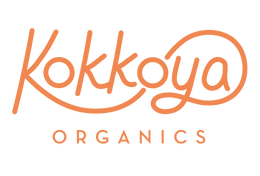Eating like a farmer
by Caity
Over the last years at Kokkoya, we have had many visitors express a dream to do similar. In particular to live a self-sufficient lifestyle, growing and producing what they need. Living off the land, being connected to nature, seasons etc ..
I think that some believe that they can only start to really eat well when they grow / make it all themselves but this romanticised notion of feeding yourself often overlooks the crucial aspect that it takes a community to feed a community.
I have spent a lot of time on different farms and while many of those farmers were resourceful and grew/made a lot of their own food, they also all had a jam from a neighbour, wine from another farmer up the road, fresh pressed oil from the next village. You do not need to leave your city life and find some remote corner of the world to eat like a farmer. Eating and living well is eating locally. It is knowing where your food came from and knowing who produced it.
As we grow our number of extras and producers we work with, I am constantly amazed at the variety and quality we have access to in Yangon. Family and friends overseas can not get the same freshness of buffalo cheese that I do. They do not know the story of their organic eggs, the lovely sisters behind their yogurt or enjoy a wine with the Yangon's queen of homemade sauces.
Whenever my mother is concerned about me, I can honestly reply not to worry because I am eating well. I am eating the freshest, most nutritious food. I am eating food I am connected to. And that, is the exact same thing any farmer would say about their own food. Its the connections and the locality that counts.
Organic is important. But even more important is eating locally. You have a much bigger impact by supporting small local companies. For some of our suppliers we have been their first customer and encouraged them to pursue making their product; for many we are the most reliable retailer; and we offer feedback that helps them improve and grow. We have also been the main reason that many have switched or are searching for alternative packaging.
Supporting local also means that money stays here. Local companies are invested in their surroundings, their staff and their community. When there is a natural disaster, local companies will donate and support much more than the company behind any imported product.
There are of course the environmental benefits too- mainly less carbon used in transportation. But it is also much easier to convince a market vendor to use less oil in their dish than to ask KFC for healthier chicken. How would you like your food to be grown or processed? How would you like your local bakery to treat their staff? When you know them, you can open a dialogue with them, engaging and encouraging them to keep getting better, using more sustainable products, upgrading packaging- creating a product you want to eat. Direct questions and conversations with the individuals that produce your food are invaluable and they have an impact that just keeps spreading.
Having a closer connection to food and those who made it has one other incredible benefit- joy. I respect my food more, I cook better and that is joyful! I could eat a dinner alone but still be completely connected to the world around me. Just like the famous quote in the movie, ‘Into the Wild’- happiness is only real when shared. The same could be said for food.
So get out into it. Join the local food movement. Test the products from our suppliers. Send them an email or message introducing yourself. The world is going through some tough times and nothing makes us more resilient than sticking/ eating together.
So who is on your plate today?

Mini Frittatas and Salad created by a community-
Eggs from Oisca
Dukkah from Three Good Spoons
Pesto (inside) from Sprouts
Yogurt from Bulgarian
Tahini from Roots Myanmar
Tomatoes from Ipho
Spring Onion from Thida Lwin
Salad from Kokkoya's urban farms
